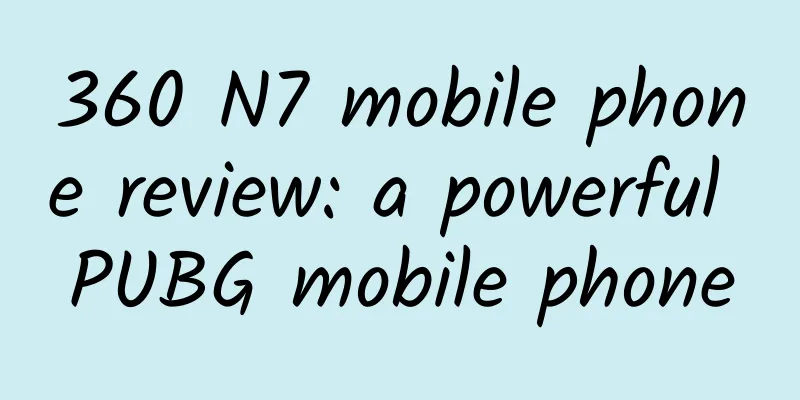China Unicom will withdraw 2G base stations in some cities to give up frequencies to 4G

|
People familiar with the matter revealed that in order to develop 4G, China Unicom will be forced to shut down some 2G networks in some 4G converged networking pilot cities to ensure that 4G has more frequency bandwidth. This reflects that the national support for Unicom's FDD frequency resources is insufficient, and it also reflects Unicom's determination to build an FDD network. On June 27, the Ministry of Industry and Information Technology approved China Unicom and China Telecom to conduct hybrid networking experiments in 16 cities across the country, that is, 4G networks can use both TDD and FDD standards. It is understood that China Unicom Group's overall network construction idea is that 3G is the main bearer network for voice and data, and 4G is the high-speed data service interface. The 4G network deployment is based on the principle of improving both network competitiveness and investment efficiency. It is reported that China Unicom's 2G frequency clearance and network withdrawal mainly occurred in the 16 cities where China Unicom opened 4G hybrid networking. Since the 2*10M frequency of the uplink 1755-1765 MHz/downlink 1850-1860 MHz segment will be used by China Unicom, in order to meet the frequency band requirements of the 4G network, China Unicom will clear the frequency of the original 2G network. Taking Shanghai Unicom as an example, Shanghai Unicom has opened 4,000 4G base stations, and key towns within the outer ring of Shanghai and in the suburbs have good 4G signals. It is reported that in the future, FDD will be the main data bearer network of Shanghai Unicom, and TDD will provide services in important hot data areas. To ensure that the FDD network has a higher bandwidth, Shanghai Unicom partially withdrew its 2G network in May this year, and allocated 10 MHz of resources to the FDD network. Together with the original 10 MHz of FDD, FDD has achieved 20 MHz broadband. Shanghai Unicom will build 4,000 FDD base stations, which is equivalent to the number of 3G base stations. Technically, this is not difficult. It is just to upgrade 2G base stations to 4G base stations and use the freed frequencies for 4G. In this way, China Unicom can transition to 4G as soon as possible in some cities, which will not be bad for users. However, the withdrawal of 2G base stations will be disadvantageous for 2G users who only know how to make calls, as the 2G signal will become weaker. As a winner of Toutiao's Qingyun Plan and Baijiahao's Bai+ Plan, the 2019 Baidu Digital Author of the Year, the Baijiahao's Most Popular Author in the Technology Field, the 2019 Sogou Technology and Culture Author, and the 2021 Baijiahao Quarterly Influential Creator, he has won many awards, including the 2013 Sohu Best Industry Media Person, the 2015 China New Media Entrepreneurship Competition Beijing Third Place, the 2015 Guangmang Experience Award, the 2015 China New Media Entrepreneurship Competition Finals Third Place, and the 2018 Baidu Dynamic Annual Powerful Celebrity. |
<<: Is a 2K screen mobile phone worth buying?
>>: 3G or 4G? Are you also switching from “3” to “4”?
Recommend
Small video about making money, free download of Wang Tong SEO money-making training video tutorial!
Wang Tong, some people say he is a liar, some say...
【motioner】3D software brawl|Dreamlike combos from concept to screen【HD quality with material】
【motioner】3D software brawl|Dreamlike combos from...
User pyramid model: Zhihu promotion case analysis
As the proposer of the user pyramid model, Lei Le...
Why is juniper pollen so popular? The scientific truth behind the "smoking" of the top streamers
This spring, juniper pollen has become a "to...
A must-read for women! How terrible is “corpus luteum rupture”?
The following incident happened at the Asian Game...
iOS 14 "Voice Recognition" function test: Can you know when the door is knocking even with headphones?
Apple has introduced a large number of new featur...
Xi'an's unique men's sauna club, come and experience it with curiosity
Xi'an Bath Club East Suburbs, South Suburbs, ...
Chinese Internet celebrities who are popular on YouTube
"Li Ziqi is super popular in Korea!" A ...
World Sleep Day丨Take a look at the self-help guide for staying up late and suffering from insomnia!
Today (March 21) is World Sleep Day. Perhaps you ...
PNF Proprioceptive Neuromuscular Facilitation Technique Video Tutorial
Course Contents: 1. Introduction to PNF promotion...
Why is your information flow copy conversion rate not high?
I have been thinking, what is the essence of Inte...
How was Overtime Wang made?
[[147867]] If the IT industry is the hardest hit ...
5 core skills that a novice needs to advance to an operations expert
In recent years, operations positions have been v...
Register as a mobile developer essential tool, get 100G Baichuan Multimedia traffic and 10 yuan recharge card for free
Ali Baichuan (baichuan.taobao.com) is the wireles...









